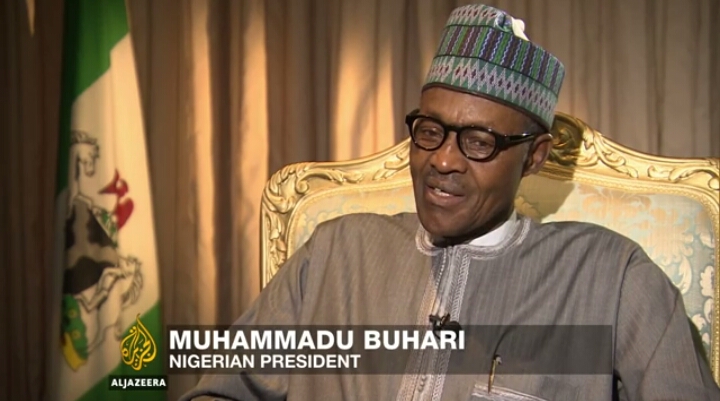
Beside external borrowing, this government should be bold enough to seek a law that will allow it to begin the sequestration of all the oil blocks that previous governments handed to some local and foreign cronies, fronting for these past leaders.
Those making declarations of non-performing asset are as wrong as those calling for the sale of our major revenue generating asset. The questions are: Why are certain asset declared non-performing? Are they not purposefully made moribund so that they could be easily proclaimed non-performing and sold as mere scraps to the sponsors of those who worked hard to render them moribund? Wasn’t that the exact strategy a past president adopted to ensure that the country’s Urban Development Bank, which was jointly owned by the three tiers of government, was not only sold to his fronts, but to make sure the sale was never reversed, his fronts went as far as renaming the bank the Infrastructure Bank of Nigeria?
That is why I am against the sale of any of our national asset by the Buhari administration, and particularly given its sense of patriotism and lack of personal motives in disposing of our inter-generational asset—whether called performing or non-performing. If the sale of national asset can really bring the country out of its present economic recession, it can only be temporarily. As soon as this cosmetic answer disappears, the structural and policy defects inherent in the economy will reappear to take back to another and deeper economic recession.
But where in conventional economics is it demonstrated that once a nation finds itself in an economic recession, all it has to do is to just sell off its asset? Surely, my position is that selling any of our national asset during this challenging time will both be due to leadership laxity and policy myopia. If Nigeria did not have these asset, what would the government have done—sell its citizens?
I strongly believe that without fully interrogating and diagnosing what brought us to where we are today, any solution would be like shooting, without aiming, at the target. Believing in mere luck is a dangerous endeavour. That is why, as far as I am concerned, selling off any of our national asset should be the last thing that comes to the minds of those running this government.
I think that rather than do this, we should exhaust the option of borrowing—and cheaply too—foreign loans. With Nigeria’s 14 percent debt to GDP ratio, we have one of—if not the lowest—national debts among peer economies. The problems with our past borrowings are mostly two: borrowing locally at cutthroat interest rates and through short-term windows and borrowing unproductively for big recurrent expenditure rather than for capital projects that are supposed to, besides reducing the cost of doing business, increase productivity and inclusive growth.
It is because of this that most Nigerians are averse to further borrowing, and doing so without taking into consideration that a country as creditworthy as ours should be the last to be allergic to borrowing. Borrowing externally is good for economies like ours because unlike domestic borrowing which crowds out the real sector firms from the debt market, external borrowing allows the real sector to have more money to take on domestically.
But for such loans to yield the badly expected results, they should be based on targeted capital projects, which are supposed to drastically reduce the current high cost of doing business, and that should make locally made goods increasingly as competitive as the imported ones. This should take Nigeria from being among the worst competitive economies to becoming increasingly among highly competitive economies.
Aside borrowing, what about the bilateral currency swap the government was rumoured to have being in the process of negotiating with the Chinese government during President Buhari’s past state visit to Beijing? This question is important because had it been that we were able to sign a bilateral currency swap agreement with China, that would have reduced the current pressure on our FOREX reserve, which is in its lowest level in years.
Because that would mean reducing the pressure on forex by about 35 percent, if not more, given how the presence of about $15 billion worth of Chinese yuan would encourage most Nigerian imports to give more preference to Chinese goods. Without the current forex pressure that led to the collapse of the naira, it would have made sense for the government to have gone ahead and adopt quantitative easing to meet its growing domestic financial obligations.
Beside external borrowing, this government should be bold enough to seek a law that will allow it to begin the sequestration of all the oil blocks that previous governments handed to some local and foreign cronies, fronting for these past leaders. We should not only end there, President Buhari should go as far as hiring some of the world’s best auditors to come after the asset acquired as a result of the oil blocks. Besides this, capable of leading to the recovery of over $50 billion in cash, the government should expect not less than $300 billion asset it can easily confiscate.
What about the recent discovery by this government that virtually all the international oil companies operating in the country have been engaging in oil theft to the extent that the Federal Government recently sued two of the IOCs for $12 billion for the shortfall/undeclared/under-declared crude oil taken out of Nigeria in recent years? These international auditors helped the government discover these under-declared volumes of oil, to the extent that the amount sold by the IOCs to their US clients was far higher than what they declared to Nigeria. Why shouldn’t the government fast-track these cases already instituted in some federal high courts in the country?
Odilim Enwegbara, a development expert and consultant, writes from Abuja.
PremiumTimes
END

Be the first to comment